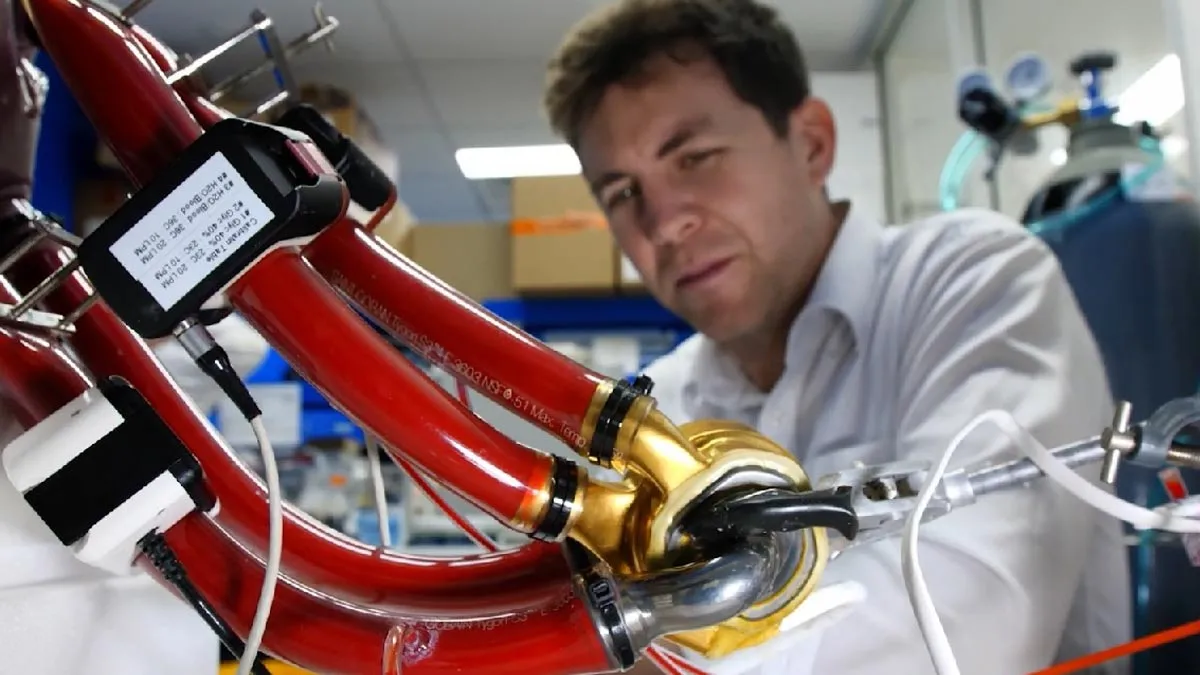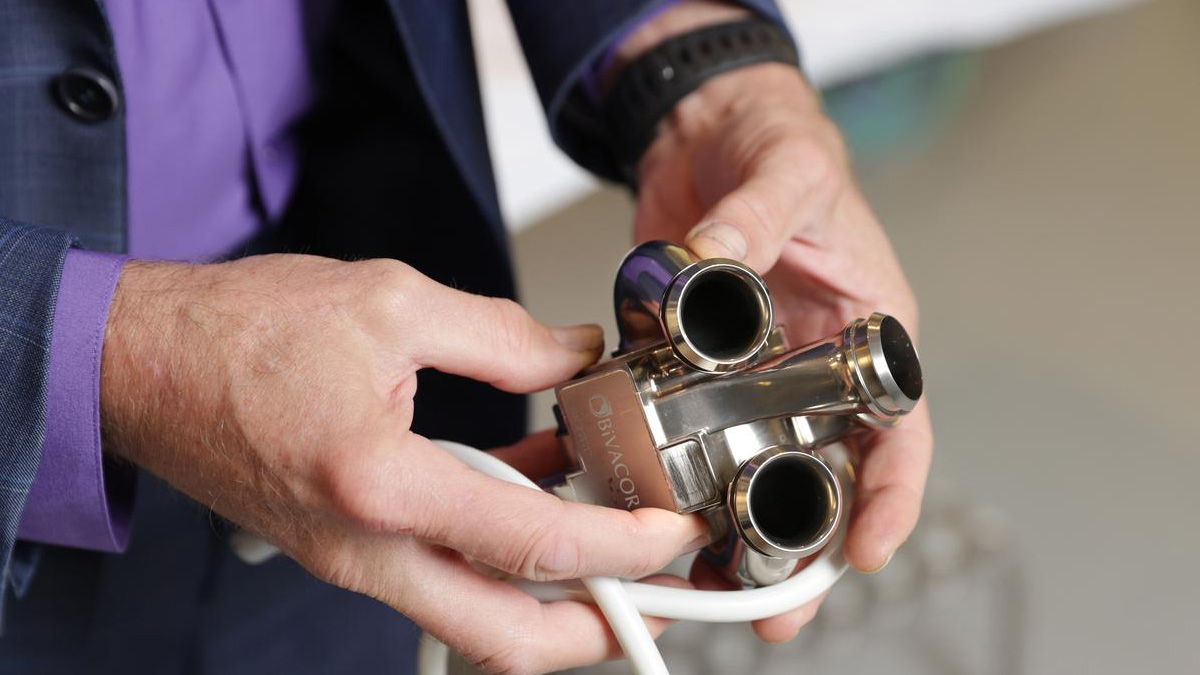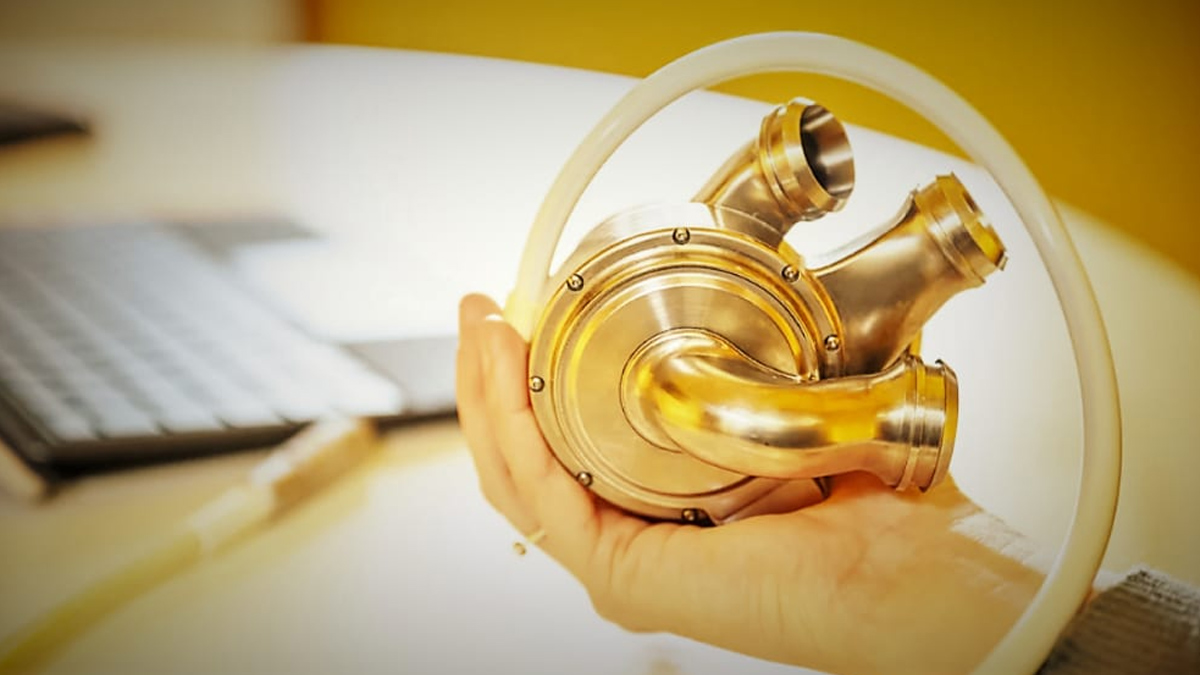
A remarkable medical milestone has been achieved in Australia as a man survived for 100 days with an artificial heart, making history in the field of cardiac care. The patient, in his 40s, underwent the pioneering procedure at St Vincent's Hospital in Sydney in November 2024 while waiting for a heart transplant. His journey represents a significant breakthrough in medical science, offering renewed hope for those suffering from end-stage heart failure.
Table of Content:-
A Life-Saving Innovation
Cardiovascular diseases remain the leading cause of death globally, claiming nearly 17.9 million lives annually, according to the World Health Organisation. For individuals awaiting donor hearts, time is often the biggest challenge. The artificial heart used in this groundbreaking case was designed to sustain patients until a suitable donor heart becomes available, potentially extending survival rates for many on transplant waiting lists.
-1741864004924.jpg)
The device, known as the BiVACOR Total Artificial Heart (TAH), is an advanced mechanical system created to replace both ventricles of a failing heart. Unlike traditional artificial hearts, this innovative system consists of a single moving part—a levitated rotor held in place by magnets—which eliminates the need for mechanical bearings or valves, reducing the risk of wear and tear. Constructed from titanium, it is engineered for durability and efficiency, ensuring optimal blood circulation to the body and lungs.
Also Read: Living Near Drains Could Increase Cancer Risk, Warns ICMR – Here’s What You Need to Know!
The Journey to Recovery
Following the successful implantation, the Australian patient spent three months with the device before leaving the hospital in February, marking a world-first achievement. Until now, artificial hearts have primarily been used within hospital settings. This milestone demonstrates that patients can sustain a normal lifestyle while awaiting heart transplants, raising possibilities for long-term use.

Experts in the field believe that this trial sets the stage for future advancements in artificial heart technology. The device is still undergoing testing and has yet to receive general approval for widespread medical use. However, its success in this case has provided the medical community with valuable insights into its long-term viability and effectiveness.
Also Read: Holi 2025: Best Natural Alternatives to Chemical Holi Colors for Hair Safety
What This Breakthrough Means for the Future
The implications of this successful trial extend beyond a single case, potentially reshaping how heart failure is managed. With a global shortage of donor hearts, artificial hearts like the BiVACOR TAH could offer an alternative solution for those who cannot receive a transplant in time.

Medical researchers believe that, within the next decade, artificial hearts may become a routine treatment option for end-stage heart failure patients. If further trials yield promising results, the technology could be developed as a long-term replacement rather than a temporary measure.
A New Era in Cardiac Care
This pioneering achievement not only marks a personal victory for the patient and his family but also signals a new era in cardiac medicine. The success of this artificial heart trial reinforces the potential for medical science to bridge the gap between life-threatening conditions and innovative solutions. While further research and clinical trials are necessary, this breakthrough brings renewed hope for millions battling heart disease worldwide.
The journey toward making artificial hearts a viable, long-term alternative is still ongoing, but this historic case has paved the way for transformative advancements in cardiovascular medicine. As science continues to push the boundaries of what is possible, artificial heart technology may soon offer a second chance at life for those in need.
Also watch this video
How we keep this article up to date:
We work with experts and keep a close eye on the latest in health and wellness. Whenever there is a new research or helpful information, we update our articles with accurate and useful advice.
Current Version